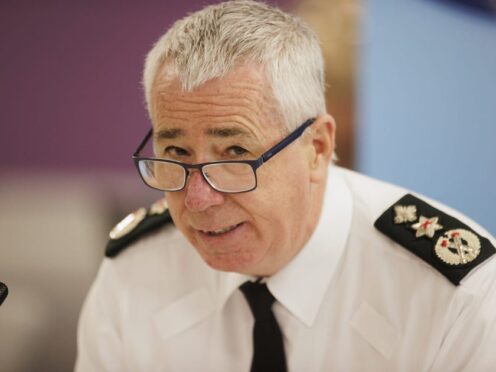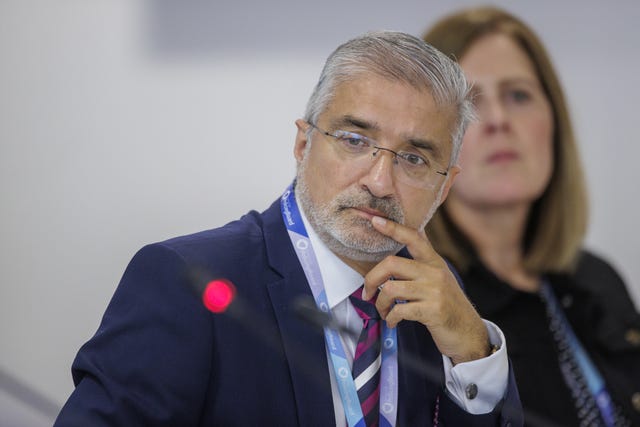
Northern Ireland’s Chief Constable is to be pressed over revelations around surveillance powers.
A hearing of the Investigatory Powers Tribunal (IPT) in London on Wednesday heard claims that police in Northern Ireland undertook six-monthly trawls of the phone data of “troublemaker” journalists to see if they were in contact with officer sources.
It came during the hearing of a case examining allegations that investigative reporters Barry McCaffrey and Trevor Birney were subject to unlawful covert intelligence by the police.

Evidence presented to the tribunal on Wednesday suggested that Police Service of Northern Ireland (PSNI) spying operations extended to several other reporters operating in the region.
Mr McCaffrey’s counsel Ben Jaffey KC revealed on Wednesday that the minutes of a meeting included in 600 pages of new evidence disclosed to the tribunal last week made reference to what was described as a PSNI “defensive operation” against journalists in the region.
“It appears to disclose the existence of what the PSNI call a defensive operation involving the cross-referencing of billing with police telephone numbers on a six-monthly basis of what appear to be a group of Northern Irish journalists who have written unobliging things about the PSNI,” he told the tribunal.
On Wednesday the National Union of Journalists (NUJ) accused the PSNI of “shocking and despicable” behaviour, and called for the service to “come clean”.
The leadership of the Northern Ireland Policing Board and Sinn Fein are both seeking meetings with PSNI Chief Constable Jon Boutcher over the revelations.
In a statement on Thursday, the Northern Ireland Policing Board said its chairman Mukesh Sharma and vice chairman Brendan Mullan are seeking a meeting with Mr Boutcher.
“Following discussions around yesterday’s Investigatory Powers Tribunal, the chair and the vice chair of the board have requested an urgent meeting with the Chief Constable to seek further clarification and assurance around whether surveillance powers have been used lawfully, proportionately and appropriately in the past,” the Policing Board spokesperson said.
“At the June board meeting, the board’s human rights adviser John Wadham will also provide members with an assessment on whether authorisation policies and procedures were correctly adhered to.”
Sinn Féin MLA Gerry Kelly has said he will be seeking a meeting with the Chief Constable of the PSNI about revelations this week in relation to the covert surveillance of journalists by police.@GerryKellyMLA https://t.co/TWjHLue3g4 pic.twitter.com/NJigb97zJM
— Sinn Féin (@sinnfeinireland) May 9, 2024
Sinn Fein MLA Gerry Kelly said he is also seeking a meeting with the Chief Constable.
“Sinn Fein is seeking a meeting with the PSNI Chief Constable Jon Boutcher about worrying revelations this week at a hearing of the Investigatory Powers Tribunal on the covert surveillance of journalists,” he said.
“The tribunal is examining allegations that investigative journalists involved in a documentary, No Stone Unturned, on the Loughinisland Massacre, Barry McCaffrey and Trevor Birney were subject to unlawful covert surveillance.
“Disclosure from this tribunal has now also pointed to extensive covert surveillance and the harvesting on an industrial scale of the phone data of journalists by the police.
“It’s becoming increasingly clear that police and British state bodies have gone to extreme lengths to monitor and silence journalists rather than deal with the allegations of collusion and police corruption which journalists have shone a light on.
“We are deeply concerned about this week’s revelations and we will be pressing the Chief Constable for answers on the PSNI’s involvement in these tactics.”

Enjoy the convenience of having The Sunday Post delivered as a digital ePaper straight to your smartphone, tablet or computer.
Subscribe for only £5.49 a month and enjoy all the benefits of the printed paper as a digital replica.
Subscribe